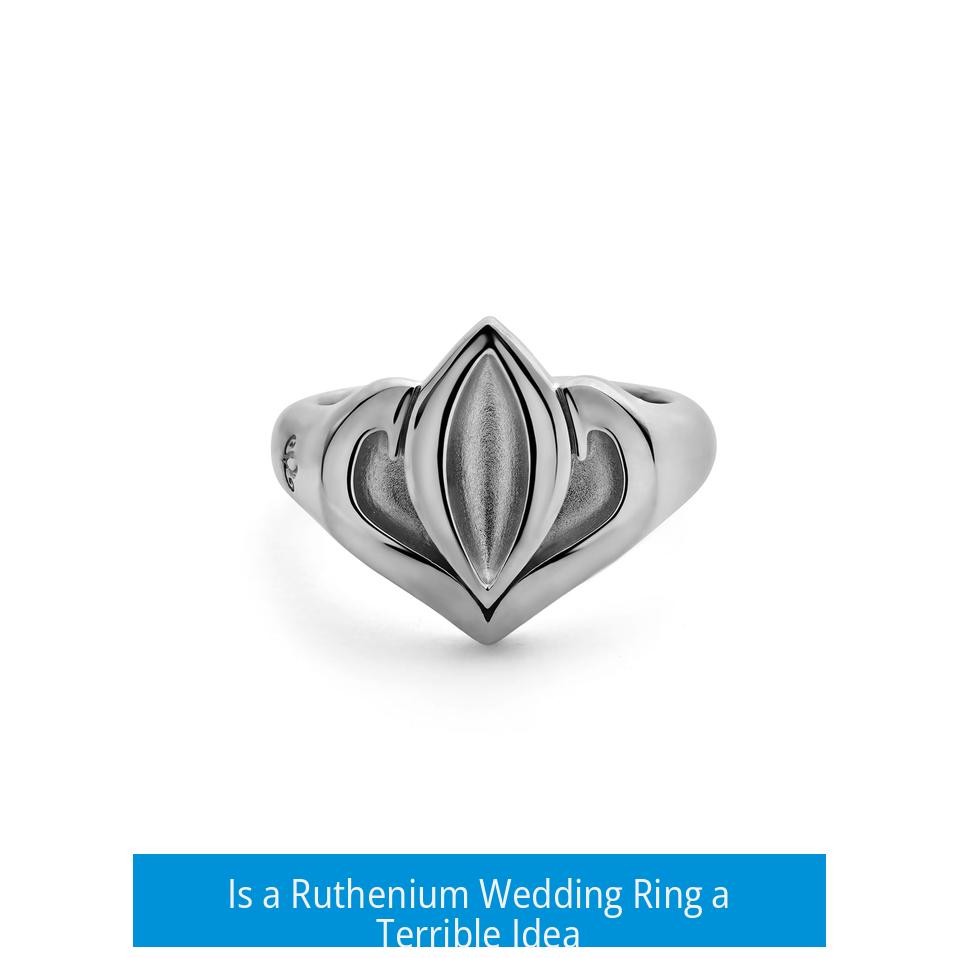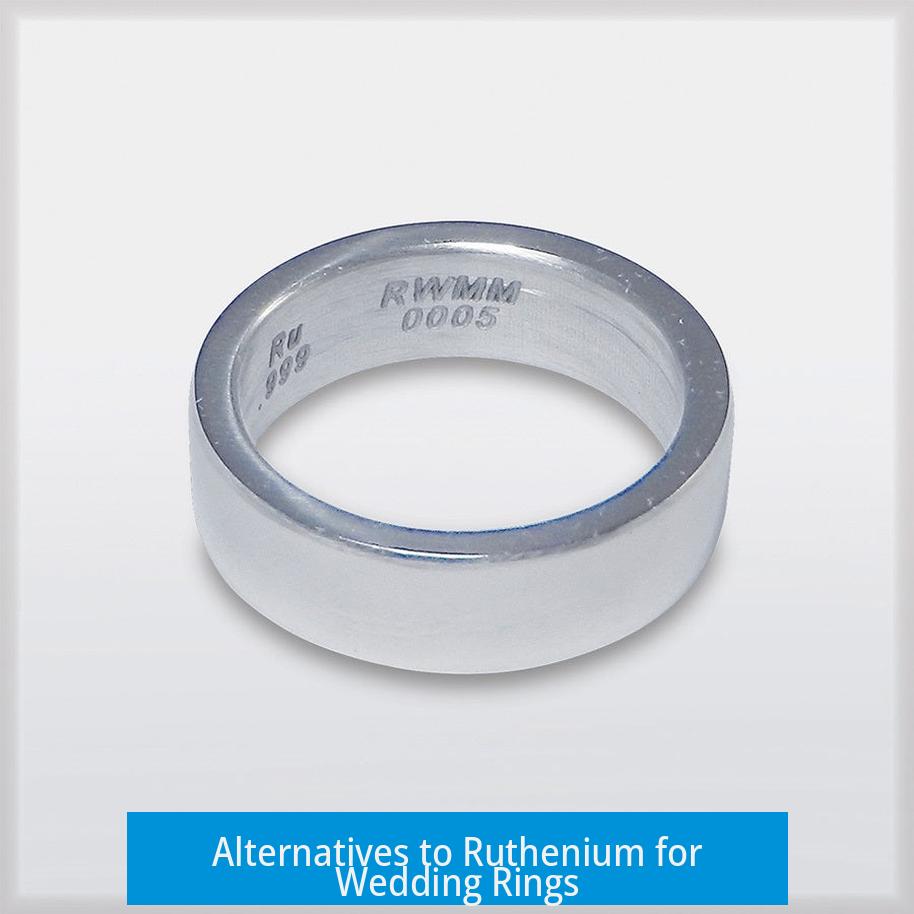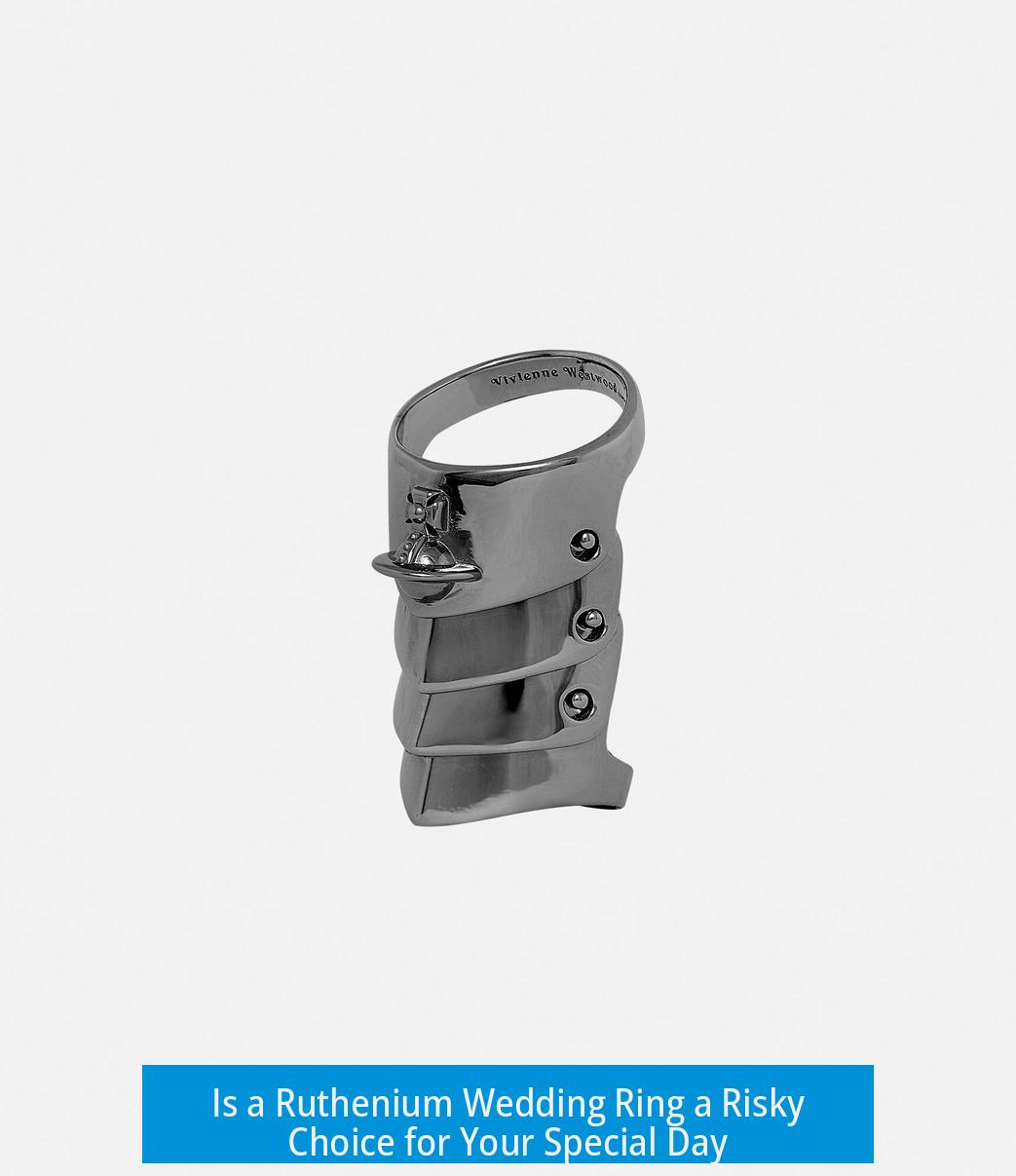Is a Ruthenium Wedding Ring a Terrible Idea?

Ruthenium wedding rings present significant challenges and risks, making them generally a poor choice for everyday wear. The metal’s chemical reactivity, potential health concerns, and physical properties raise concerns that outweigh its aesthetic appeal. While ruthenium plating on other metals appears safe, a pure ruthenium ring poses brittleness and toxicity risks. Safer alternatives like platinum or titanium better suit wedding bands.
Chemical Stability and Safety Concerns
Ruthenium reacts with common household chemicals, notably bleach. It dissolves in bleach, producing ruthenium tetroxide, a toxic gas. Although the chance of exposure to bleach while wearing a ring is low, it is not zero in domestic settings. This hazard places a practical limitation on ruthenium’s use in jewelry that faces daily wear.
Additionally, some ruthenium compounds are suspected carcinogens. While concrete data on the carcinogenicity of metallic ruthenium in ring form is limited, this raises safety questions for continuous skin contact.
Despite these concerns, ruthenium-plated jewelry is commercially available and seems to pose no immediate harm. Anecdotal user experience with ruthenium-plated metals reports high scratch resistance and no adverse effects after prolonged wear. However, plating thickness and wear over time might influence safety, as exposed base metals could react differently.
Physical Properties and Practicality of Ruthenium Rings
Pure ruthenium is brittle. Rings made of 100% ruthenium risk cracking or breaking under stress, which could cause cuts or bruises to the wearer’s fingers. This brittleness compromises durability and comfort in a piece of jewelry subjected to constant motion and impact.
Blending ruthenium with other metals like platinum, palladium, or iridium creates alloys that enhance toughness and reduce the risk of breakage. Such alloys can provide a balance between ruthenium’s attractive properties and the structural resilience needed for a ring.
Weight is another consideration. Ruthenium is very dense, and alloying with dense metals like rhenium might produce a ring that feels heavy and uncomfortable for daily wear.
Alternatives to Ruthenium for Wedding Rings

Consulting alternatives is essential given the drawbacks of pure ruthenium. Metals known for durability, comfort, and safety include:
- Tungsten: Extremely hard, scratch-resistant, and affordable. It is a common choice for men’s wedding bands.
- Niobium and Rhenium: Less common but valued for unusual appearance and durability.
- Sterling Silver: Economical, easy to clean, and repair; ideal for those on a budget.
- Gold: Soft, classic metal allowing for comfortable wear and easy resizing.
- Platinum: Precious, dense, hypoallergenic, and resistant to wear. Highly popular among chemists for symbolic value.
- Titanium: Durable and lightweight. Suitable for those who prefer minimal weight on their fingers.
- Palladium: Precious metal similar to platinum, possibly with low toxicity.
These options present better physical and chemical profiles for everyday wear compared to pure ruthenium.
Risks Associated with Hard Metals Like Ruthenium
Hard metals, including ruthenium, tungsten, and certain steel alloys, bring safety risks unrelated to chemistry. Rings made of very hard or brittle metals can cause ring avulsion injuries—instances where fingers are severely damaged due to ring catching on objects during falls or accidents.
Emergency responders often use ring cutters to remove gold wedding bands safely when fingers swell due to injury or conditions. Rings made from very hard materials pose challenges for rapid removal, potentially worsening injuries.
The risk of severe finger trauma is amplified for brittle metals prone to cracking. Therefore, caution is needed when choosing a wedding ring metal that needs to balance hardness with resilience.
Considerations and Final Thoughts
Jewelry using ruthenium plating appears relatively safe for everyday wear. However, a ring crafted from pure ruthenium faces concerns from chemical reactivity, toxicity, and brittleness. These factors make it an impractical and potentially unsafe choice for a wedding band.
Alloying ruthenium with platinum or iridium may improve durability but does not fully eliminate the inherent risks. Given better alternatives in precious and durable metals, opting for ruthenium-based rings demands careful consideration.
Personal attachment or aesthetic preferences may motivate some to choose ruthenium. For instance, those with personal connections to the name “Ruthann” might find symbolic value in ruthenium jewelry. Nonetheless, safety and practicality should generally take precedence.
Judging from current chemical and physical data alongside expert opinions, most chemists advise against 100% ruthenium rings for daily wear. Rings made of platinum, titanium, or gold remain safer and more practical options.
Key Takeaways
- Ruthenium dissolves in bleach, releasing toxic ruthenium tetroxide gas, posing domestic hazards.
- Pure ruthenium is brittle, risking breakage and possible injury on the finger.
- Ruthenium compounds are suspected carcinogens, raising safety concerns on prolonged skin contact.
- Ruthenium-plated jewelry shows good scratch resistance with no reported health issues, suggesting plating is safer than pure metal use.
- Alloys with platinum, palladium, or iridium improve ruthenium’s durability but don’t fully remove risk factors.
- Hard metals carry risk of ring avulsion injuries due to difficulty of removal and brittleness.
- Alternative metals such as tungsten, platinum, titanium, silver, gold, and palladium offer safer, durable, and practical wedding rings.
- Most chemistry experts caution against pure ruthenium wedding bands for everyday wear based on current knowledge.
Is it safe to wear a pure ruthenium wedding ring daily?
Pure ruthenium is brittle and might break, causing cuts or bruises. It also reacts with bleach, producing toxic gas. These risks make it less ideal for everyday wear as a ring.
Can ruthenium rings cause health problems?
Ruthenium and its compounds are suspected carcinogens. However, plated ruthenium jewelry has not shown adverse effects in anecdotal reports. Safety is uncertain and not fully proven.
Are ruthenium alloys better for wedding rings?
Yes. Alloying ruthenium with metals like platinum, palladium, or iridium reduces brittleness and improves durability. This makes the ring safer and more practical.
What are safer metal alternatives to ruthenium for wedding rings?
Tungsten, titanium, gold, platinum, and palladium are commonly recommended. Niobium and rhenium are also options. These metals balance durability with safety.
Do hard metal rings like ruthenium pose injury risks?
Hard metals can cause serious injuries if caught or broken. Removing hard metal rings in emergencies is harder than with gold or silver. Careful consideration is needed before choosing such rings.





Leave a Comment